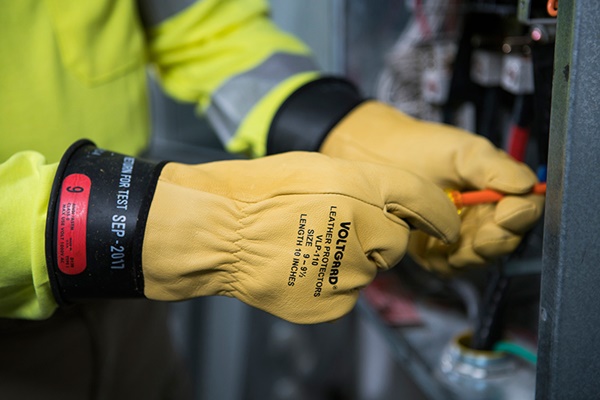When it comes to working with electricity, safety is paramount. Electrical hazards can pose significant risks to individuals, making it crucial to take necessary precautions. One such measure is the use of rubber gloves specifically designed for electrical work. These gloves act as a protective barrier, minimizing the chances of electric shock or injury. However, it is essential to ensure the reliability and effectiveness of these gloves through rigorous testing. In this blog, we will explore the importance of rubber gloves for testing safety in electrical use.
Understanding the Risks
Electricity is a powerful force that demands respect and caution. Contact with live electrical circuits can lead to severe injuries, including burns, electric shocks, and even fatalities. Professionals working in industries such as electrical maintenance, construction, or power distribution must prioritize safety measures to mitigate these risks. Rubber gloves provide insulation against electric currents, safeguarding workers from potential harm.
The Significance of Rubber Glove Testing
1. Compliance with Safety Standards: Rubber gloves used in electrical work must meet specific safety standards. Testing ensures that these gloves comply with the relevant regulations and guidelines set by regulatory bodies. It verifies their ability to withstand and protect against specific voltage levels, ensuring the safety of workers.
2. Quality Assurance: Testing provides an assurance of the quality and performance of rubber gloves. It examines factors such as material integrity, dielectric strength, puncture resistance, and elasticity. By assessing these parameters, potential defects or weaknesses can be identified, preventing any compromise in safety during electrical work.
3. Durability and Longevity: Rubber gloves are subjected to various stressors during use, such as stretching, exposure to chemicals, and physical abrasion. Testing evaluates their durability, determining their ability to withstand these challenges. This information helps users understand the expected lifespan of the gloves, ensuring that they are replaced when necessary.
4. Protection Against Contaminants: Rubber gloves can be exposed to oils, greases, and other contaminants during electrical work. Testing verifies the gloves' resistance to these substances, preventing their degradation or compromised insulation properties. This is crucial for maintaining consistent safety standards and preventing potential accidents.
Conclusion
Rubber glove testing is a critical aspect of ensuring safety in electrical work. By subjecting these gloves to rigorous testing procedures, professionals can be confident in their ability to provide effective insulation against electric shocks and other potential hazards. Compliance with safety standards, quality assurance, durability assessment, and protection against contaminants are all key considerations addressed through testing.
Remember, safety should never be compromised when working with electricity. By using properly tested and approved rubber gloves, individuals can significantly reduce the risk of electrical injuries and maintain a secure working environment. So, prioritize safety, invest in quality rubber gloves, and make sure to follow recommended testing practices to protect yourself and others from electrical hazards.








No comments
Post a Comment